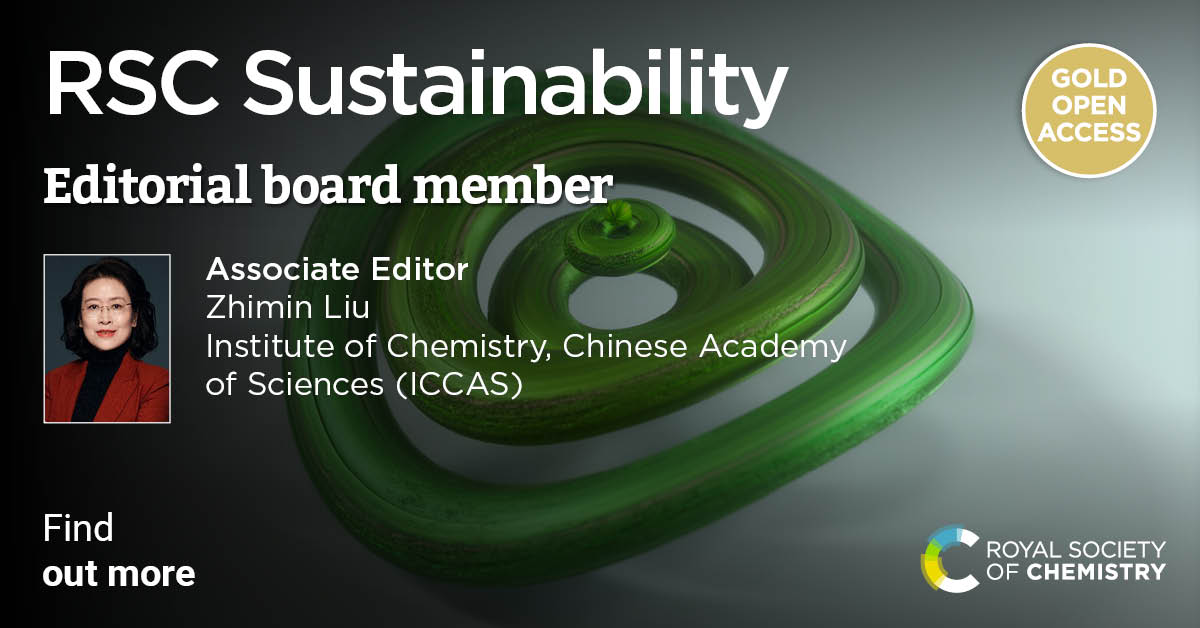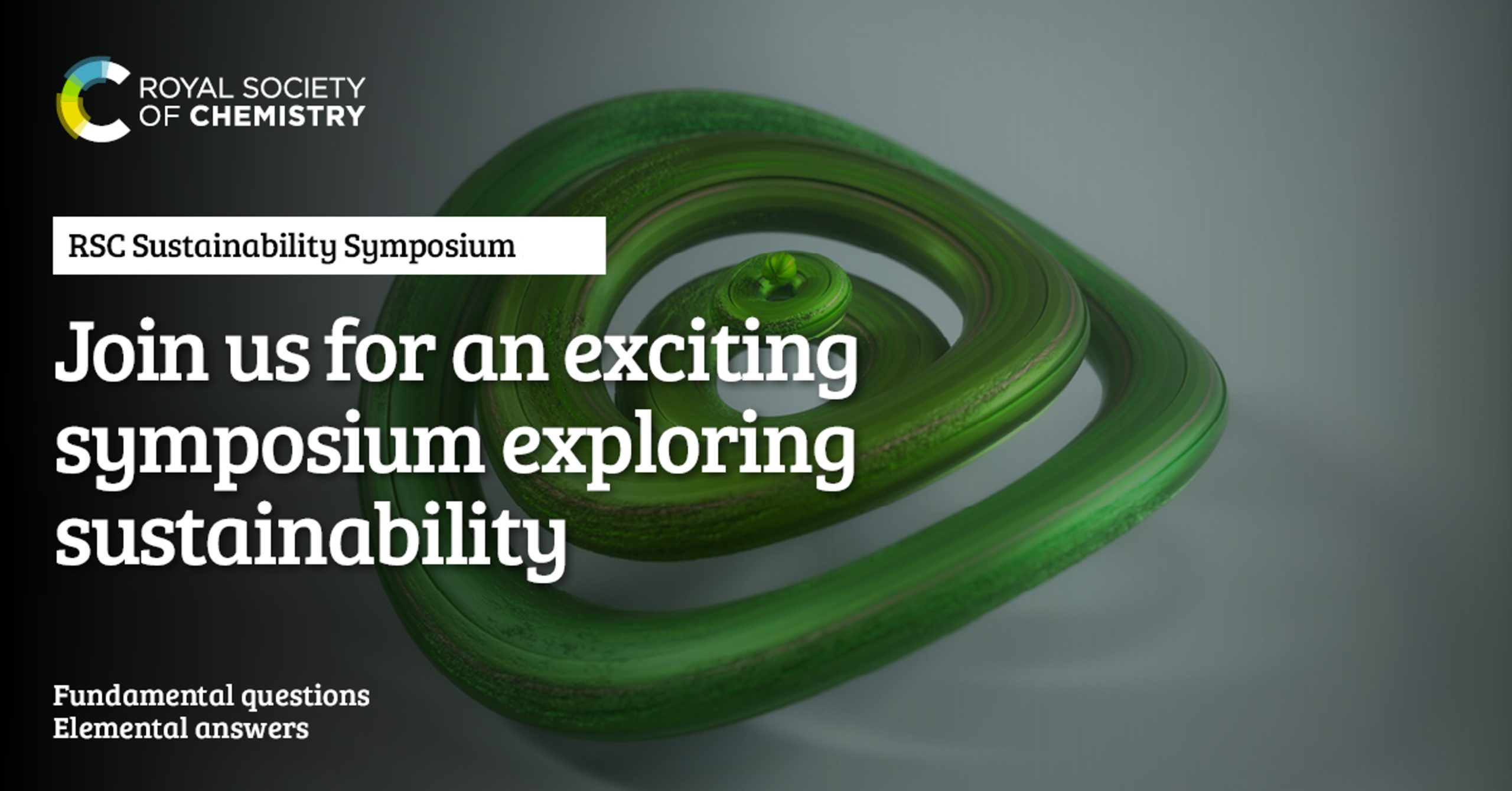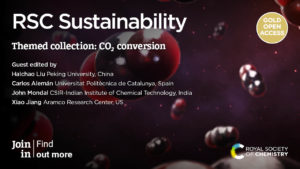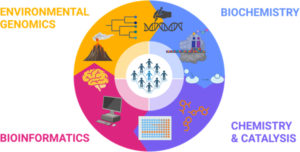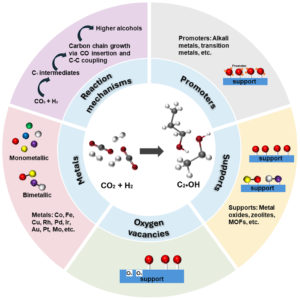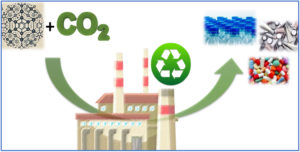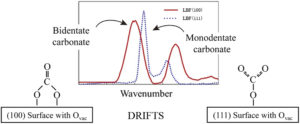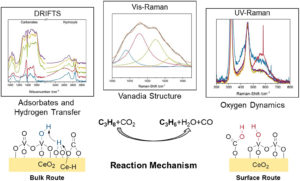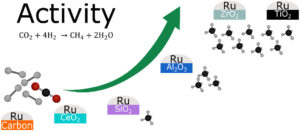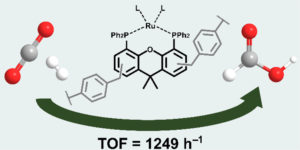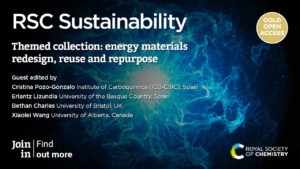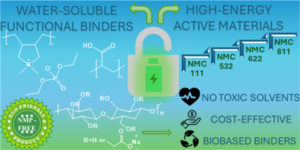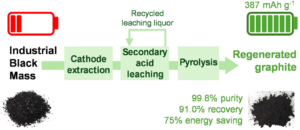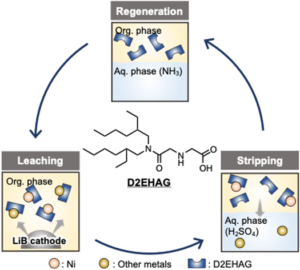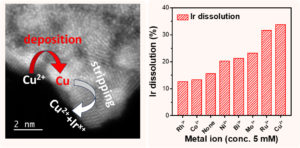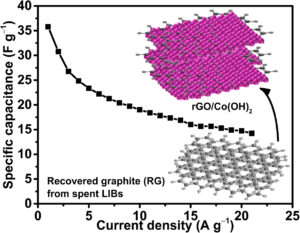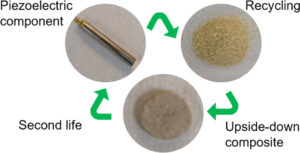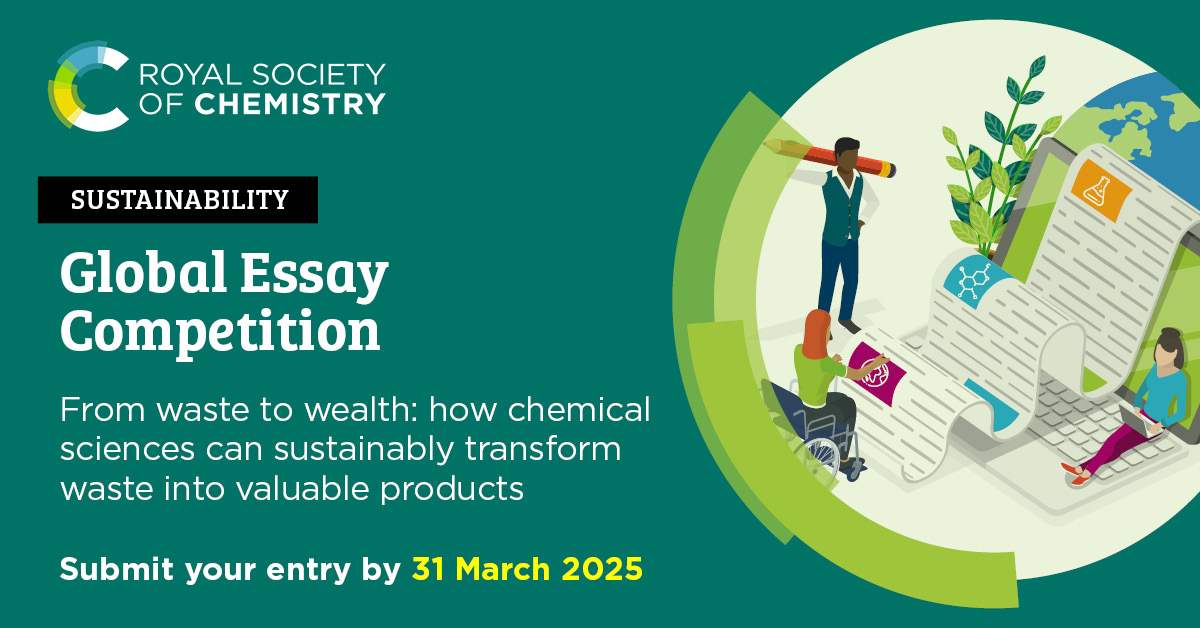We are very pleased to introduce our themed collection on the Circular Economy.
Read the full collection now: https://rsc.li/su-circular
The goal of the Circular Economy is to keep products, components, and materials in use for as long as possible in closed-loop systems, thereby extracting their maximum value and decoupling economic activity from the consumption of finite resources as well as eliminating waste.
This collection contains work relating to broad topics such as Materials and their Design, Resource Recovery, Policy and Sustainable by Design principles, as well as developments that could have implications outside of Chemical Research, such as recycling of waste fashion items or valorisation of food waste and other biomass.
The collection was Guest Edited by:
Vincent Nyamori, University of KwaZulu-Natal, South Africa
Jiajun (Alice) Fan, University of York, UK
Matthew L. Davies, Swansea University, UK
Manie Vosloo, North-West University, South Africa
Read an Editorial from Matthew L. Davies introducing the collection here:
https://doi.org/10.1039/D5SU90007G
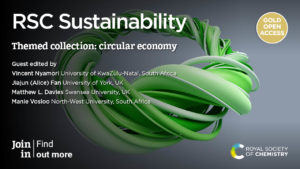
Explore some highlights from the collection, with comments provided by the authors themselves.
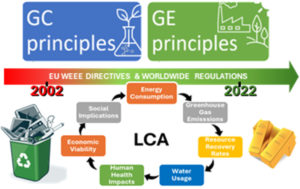
2002–2022: 20 years of e-waste regulation in the European Union and the worldwide trends in legislation and innovation technologies for a circular economy
A. Serpe, D. Purchase, et al, RSC Sustain., 2025, 3, 1039-1083
This review provides a critical analysis of global e-waste management over two decades. It highlights the expanding regulatory coverage (72% of the global population), the rapid growth in e-waste research, and the persistent gap between innovation and industrial adoption. Through a concise review of life cycle assessments, the paper demonstrates how innovative processes can reduce environmental footprints and advance circular economy models aligned with safe- and sustainable-by-design principles. With e-waste generation outpacing recycling nearly fivefold, this timely work valuable insights for academics, policymakers, and industry leaders to tackle the growing environmental and economic deficits linked to e-waste management.
 General equations to estimate the CO2 production of (bio)catalytic reactions in early development stages
General equations to estimate the CO2 production of (bio)catalytic reactions in early development stages
Pablo Domínguez de María, RSC Sustain., 2024, 2, 3817-3825
So you think your process is green? Let´s estimate its CO2 production!!
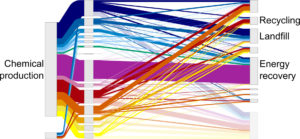 Mapping the end-of-life of chemicals for circular economy opportunities
Mapping the end-of-life of chemicals for circular economy opportunities
Taylor Uekert, RSC Sustain., 2024, 2, 3353-3361
For such a short word, “chemical” encompasses a long list of different molecules, all of which are used – and disposed – in different ways. That makes tracking chemicals especially challenging (and fun!), which is why I’m so excited to share this work highlighting the complete life cycle of chemicals from production through to end-of-life.
 Chemically recyclable and reprogrammable epoxy thermosets derived from renewable resources
Chemically recyclable and reprogrammable epoxy thermosets derived from renewable resources
Željko Tomović, et al, RSC Sustain., 2024, 2, 3311-3319
Through closed-loop recycling and reprogramming, we demonstrate the synergy between performance and sustainability in modern thermosetting plastics
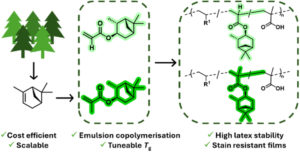 Sustainable, upscaled synthesis of pinene-derived (meth)acrylates and their application as high Tg monomers in styrene/acrylic-based bioderived copolymer coatings
Sustainable, upscaled synthesis of pinene-derived (meth)acrylates and their application as high Tg monomers in styrene/acrylic-based bioderived copolymer coatings
Steven M. Howdle, Robert A. Stockman, et al, RSC Sustain., 2024, 2, 2515-2523
We’ve created a biobased, sustainable monomer that gives high Tg polymer and appears to be a valuable addition to the raw material toolbox for developing sustainable binders for coatings. We’ve shown that this monomer can be “dropped-in” to create industry ready coatings. Now the challenge is to scale up the monomer synthesis even further to a commercially viable scale.
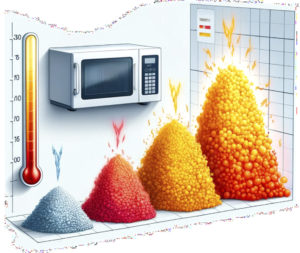 Thermal approaches based on microwaves to recover lithium from spent lithium-ion batteries
Thermal approaches based on microwaves to recover lithium from spent lithium-ion batteries
E. Bontempi, et al, RSC Sustain., 2024, 2, 2505-2514
This innovative study introduces a microwave-based thermal method for efficiently recovering lithium from spent lithium-ion batteries, achieving over 80% recovery in just 5 minutes at 600 W, thereby supporting sustainable resource management and advancing the energy transition.
 Ionic-liquid-processed keratin-based biocomposite films with cellulose and chitin for sustainable dye removal
Ionic-liquid-processed keratin-based biocomposite films with cellulose and chitin for sustainable dye removal
Mara G. Freire, Jason P. Hallett, et al, RSC Sustain., 2024, 2, 2239-2248
This article introduces a groundbreaking approach to valorizing chicken feather waste by recovering keratin and developing films, either in pure form or blended with cellulose and chitin. These films demonstrate customizable properties and high potential for wastewater treatment.
We would like to thank all the authors and reviewers who contributed to this collection and hope that you find the work enjoyable and informative.
Comments Off on Presenting RSC Sustainability’s themed collection: Circular Economy


